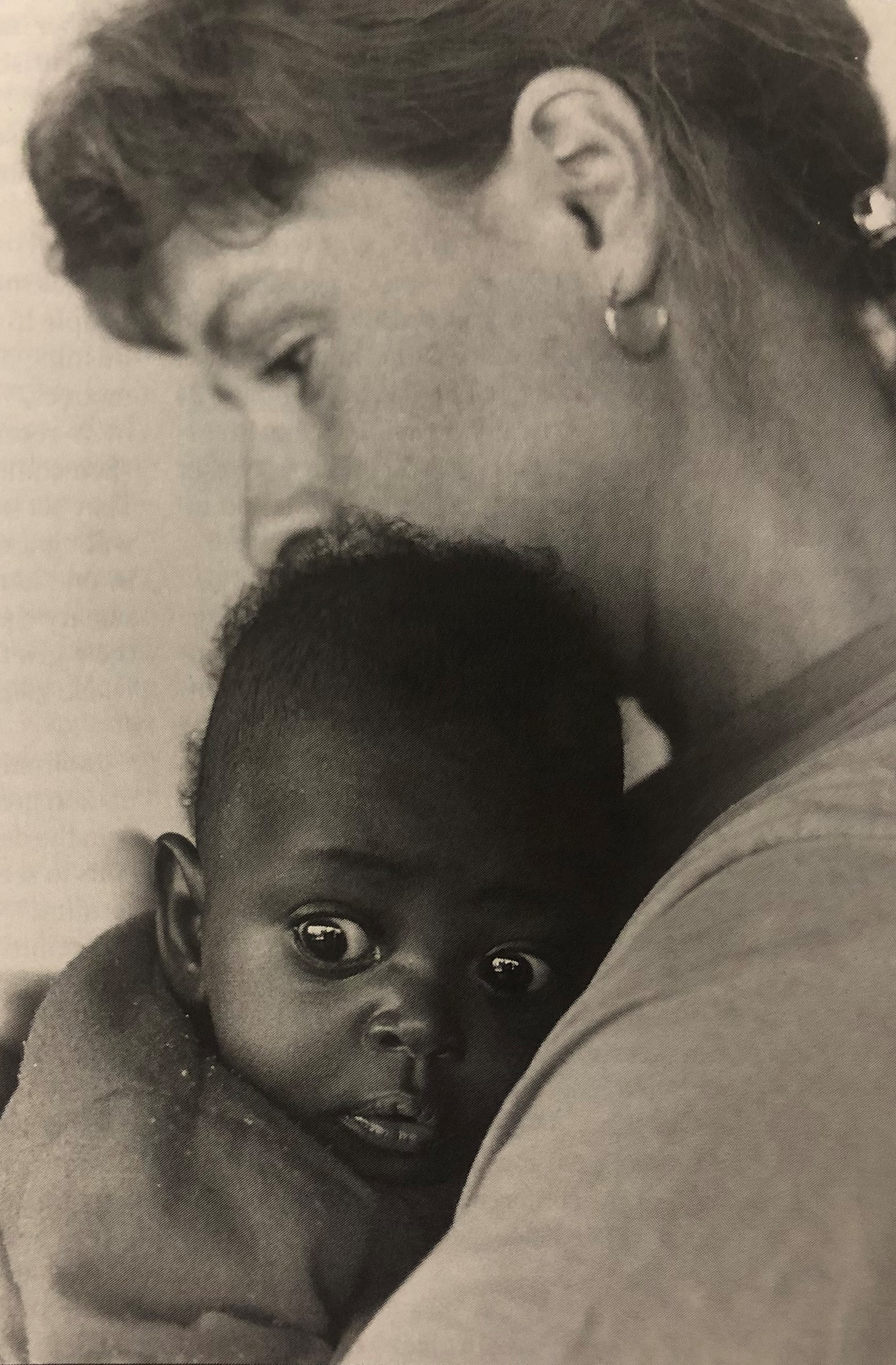Before she had a name, even before she drew her first breath, Annamary Neema suffered.
Just days before she was born last August, her mother, Uwasanase, joined the surging scramble across jungles and swamps to flee the killing in Rwanda. No one knows if Uwasanase, probably already fatally ill, watched her husband and other children hacked or shot or if she was just separated from them in the panic.

No one knows what the near-term baby felt when Uwasanase shivered fearfully as the lions roared in the nights as she crossed the game park, scavenged for food or begged with the boatmen to carry her downstream to the United Nations Refugee Camp on the Tanzanian side of the river.
Nine days after she was born, Annamary, or whatever her desperately ill mother named her, was orphaned. There was no time—and no need—for post-mortem tests, but Uwasanase probably died from meningitis, and there were numerous indicators she had AIDS.
The infant, facing as bleak a future as almost any baby in the world, was taken to St. Mary’s Hospital in Isingiro, Tanzania, where the Catholic nurses fell in love with her, had her baptized and gave her a name.
Meanwhile, in the Kagenya Refugee Camp, Janet Hooten, a Southern Baptist missionary who evacuated Rwanda in the civil war and was working with Baptist Relief Services (BRS), was asked to get involved.
She knew only the mother’s name and in which zone the dead woman had been registered. Janet and her husband, David, went hut-to-hut for days but found no one who knew anything about the dead woman or the baby. No one claimed the mother’s body for burial.
The day after ending the unfruitful search, Janet was visiting with Feliciana, a Tanzanian Baptist who was working as a cook for the BRS camp. The woman said she and her husband (William Caroli, pastor of Nykabwera Baptist Church near the camp and a key leader in Tanzanian Baptist ministries to the refugees) had been married for six years but had no children. She added that they wanted to seek medical help because being childless “is a shame for us,” or they would love to be able to adopt a baby.
Janet had not mentioned the orphaned baby girl before, but Feliciana eagerly agreed to pray with her husband about possibly adopting the infant. Early the next morning they answered yes.
BRS said yes; Concern (the supervising agency in the camp BRS works under) said yes. The staff of Doctors Without Borders said yes. Tanzanian government officials said yes.
But the United Nations High Commission on Refugees (UNHCR) said no. UNHCR has a rule that Rwandan orphans should be placed with Rwandan families.
The fact that there were more orphans than families willing to take them and that any such adoption would doom Annamary to years, if not a lifetime, in a refugee camp did not change the administrative decision.
So while Annamary grew fat and spoiled at the hospital in the care of the fiercely protective nurses, Janet Hooten and others looked unsuccessfully for a “suitable home” by UNHCR standards.
Twice when the Carolis felt they were on the verge of getting the baby, they absorbed emotional body blows instead. First they were informed the baby might be HIV positive. Did that change their minds? After several days of prayerful struggle they still felt they wanted the girl.
Second, they were told they could be foster parents only for the first two years, and if any relative of the baby were found during that time they would have to surrender the child at once. After several more days of consideration the couple remained willing to take Annamary into their home.
Still, UNHCR delayed. Finally, on Dec. 14 the last signature was affixed to the final form, and Annamary for the first time in four months had a mother. And for the first time in her life she had a father.
“The delay was very frustrating,” Janet acknowledges. “But in the middle of a tragic situation like Rwanda, it is quiet little miracles like this that keep you going.”
Baptists have been a part of numerous “small miracles” in Tanzania since Baptist Relief Services has placed almost 200 unaccompanied, abandoned or orphaned children with suitable families within the refugee camps.
But Annamary—a refugee before she was born, who barely knew her mother, who survived a lengthy battle with bureaucratic red tape—is a bigger little miracle than most.
Originally published in The Commission, March-April 1995, p. 95.

